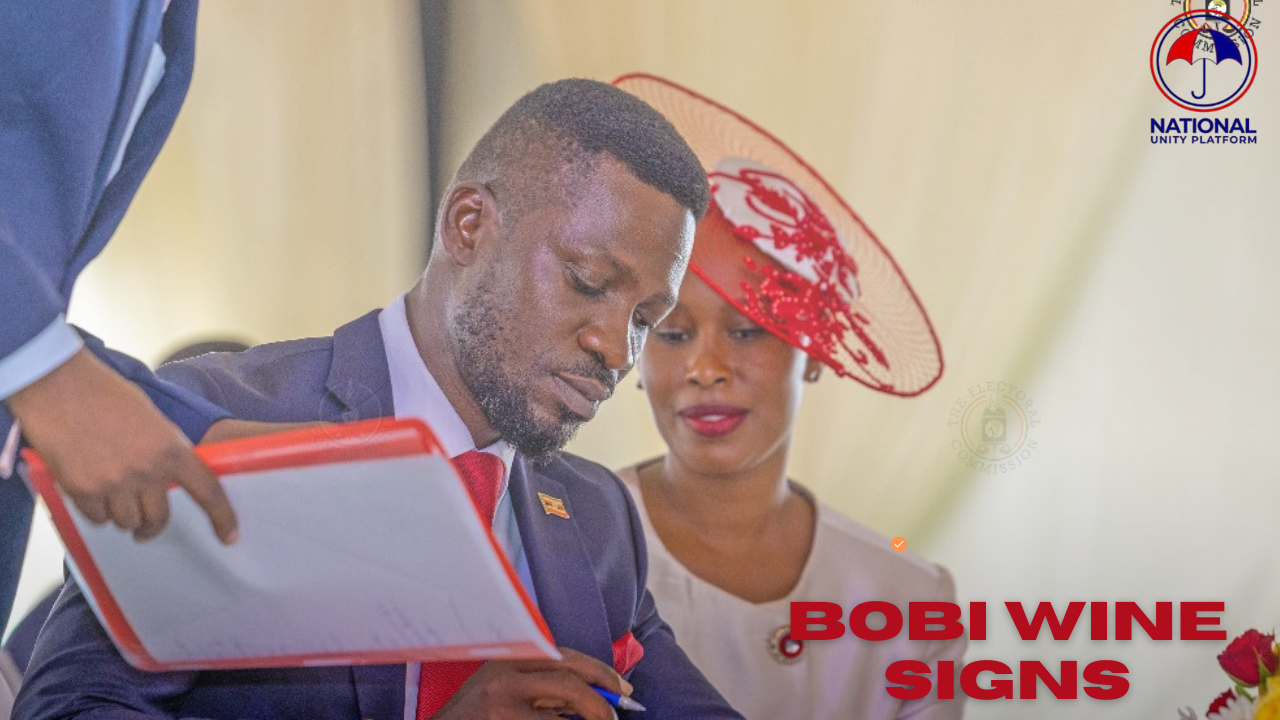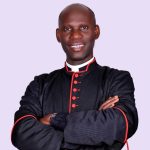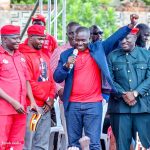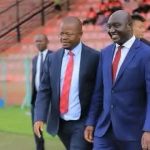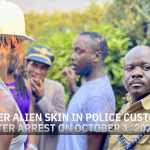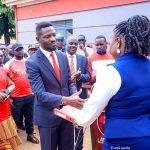In a powerful and impassioned speech, Robert Kyagulanyi, popularly known as Bobi Wine, the leader of Uganda’s National Unity Platform (NUP), delivered a stirring message to his supporters, the international community, and the nation at large.
His words, steeped in resilience, sacrifice, and an unyielding commitment to democracy, resonate as a clarion call for freedom in a country long burdened by authoritarian rule. As Uganda braces for what promises to be a tumultuous election campaign, Wine’s speech underscores the stakes of the struggle not only for Ugandans but for the stability of East Africa and the global community.

A Legacy of Resistance
Bobi Wine began by honoring the sacrifices of those who have kept the fight for Uganda’s liberation alive. From political prisoners like Dr. Kizza Besigye, Alex Waiswa Mufumbiro, and others, to the ordinary citizens who have endured tear gas, bullets, abductions, and loss, Wine acknowledged the steep personal costs borne by those who refuse to compromise their principles.
“We have kept the struggle alive, and we are only growing stronger,” he declared, framing the movement as an unstoppable force fueled by the courage of Uganda’s people.The speech paid tribute to the “foot soldiers” and everyday citizens who have stood by him through years of brutal state repression. These comrades, Wine emphasized, have been his shield, courage, and strength.

As they prepare for an even more volatile campaign, he urged them to remain vigilant, disciplined, and fearless in the face of escalating dangers. “Fear is the weapon the dictator wants to use against us,” he warned, rallying his supporters to reject intimidation and stand firm.
A Vision Beyond Uganda’s Borders
Wine’s message extended beyond Uganda, appealing directly to the international community. He framed Uganda’s struggle for freedom as a global concern, arguing that an unstable Uganda under dictatorship poses a liability not only to its neighbors but to Western nations receiving Ugandan asylum seekers.
“A free Uganda is a stable East Africa and a prosperous Africa,” he asserted, positioning the fight for democracy as an investment in regional and global stability. By standing with Uganda’s people, the international community can help build a nation that is an asset rather than a burden.
This appeal is particularly poignant given Uganda’s history of political repression under President Yoweri Museveni, who has ruled for nearly four decades.
The regime’s crackdowns on dissent, media, and civil liberties have driven many Ugandans to seek refuge abroad, placing pressure on international systems. Wine’s call for solidarity underscores the interconnectedness of human rights and global security, urging the world to support Uganda’s quest for democracy.
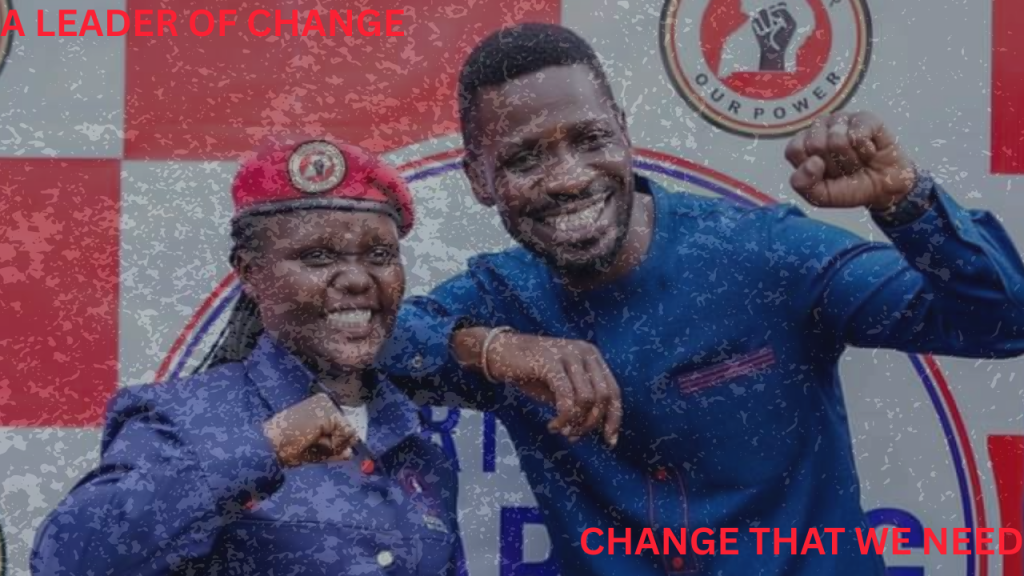
A Fight for the Future
At the heart of Wine’s speech is a vision for a better Uganda one that serves its farmers, boda boda riders, unemployed graduates, and marginalized youth. He spoke not only of the oppressed but also of the oppressors, humanizing the police officers forced to brutalize citizens while living in precarious conditions themselves.
“They’re victims too,” he said, urging his supporters to see beyond the uniform and recognize the shared desire for change.Wine framed the struggle as a generational mission, drawing parallels with the sacrifices of Uganda’s forebears who fought for independence 62 years ago and the liberation struggles of the 1980s.
He honored the missing and fallen comrades whose blood has been spilled in the current fight, emphasizing that their sacrifices must not be in vain. “We’re carrying the hope of our entire generation,” he declared, underscoring the historical weight of their responsibility.
A Defiant Stand Against Fear
As Uganda heads into a campaign likely to be marred by violence, Wine’s speech was both a rallying cry and a sobering acknowledgment of the challenges ahead. “Hope for the best but prepare for the worst,” he advised, urging his supporters to remain vigilant and protect one another.
He redefined their duty—not to shield him, but to safeguard each other and the people attending their rallies. This collective responsibility reflects the grassroots nature of the movement, which draws its strength from ordinary citizens united in a common cause.Wine’s defiance was palpable as he declared, “Failure is not an option.”
The stakes, he argued, are existential: success means a free Uganda, while failure condemns future generations to “more slavery.”
This stark framing underscores the urgency of the moment and the movement’s refusal to back down, even in the face of overwhelming odds.
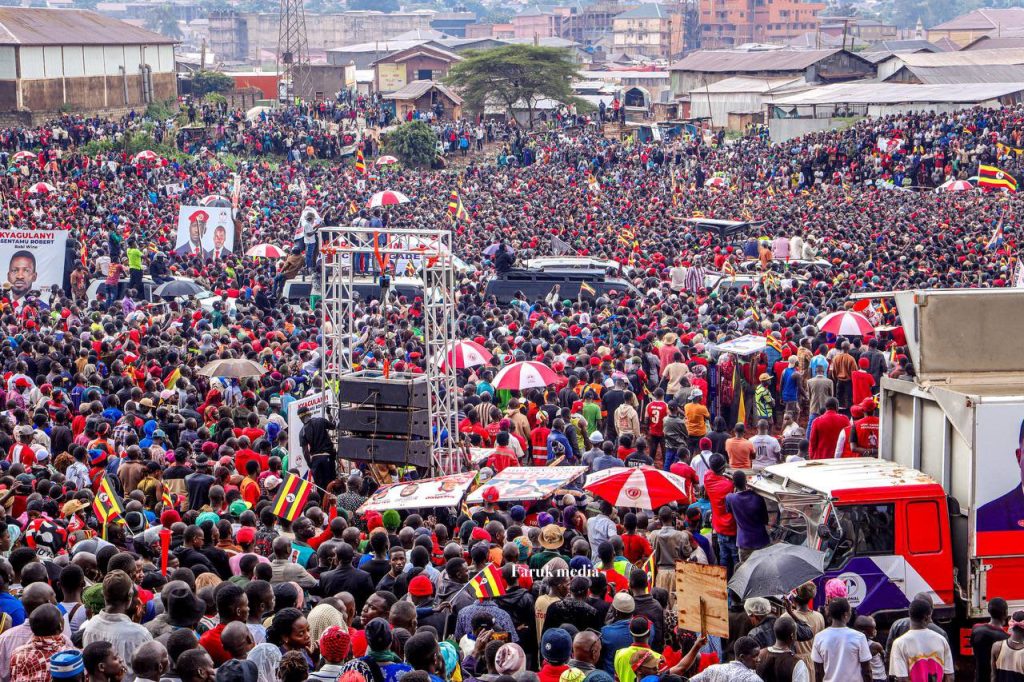
.A Long Walk to Freedom
Quoting the iconic phrase “a long walk to freedom,” Wine invoked the spirit of global struggles for justice, from Nelson Mandela’s fight against apartheid to the civil rights movements that have reshaped nations. His speech is a reminder that freedom is never easily won—it demands courage, discipline, and an unwavering belief in the cause.
As Uganda’s opposition faces a regime known for its ruthlessness, Wine’s message is a testament to the resilience of a people who refuse to be silenced.
For the families of political prisoners, the supporters braving the campaign trail, and the millions of Ugandans yearning for change, Bobi Wine’s words offer hope and a call to action. The road ahead may be fraught with danger, but as Wine and his comrades march forward, they carry the dreams of a nation—and the promise of a freer, fairer Uganda.
PEOPLE POWER OUR POWER

